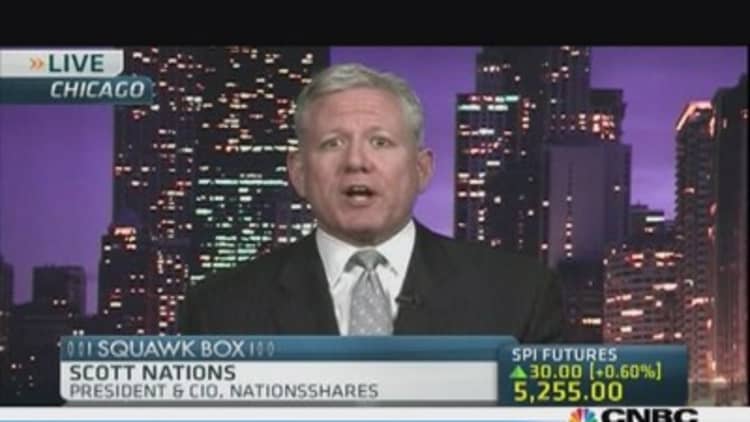As gold closes in on what looks to be its worst annual performance in over three decades, research house Capital Economics argues the precious metal could come back into favor in 2014.
The Federal Reserve's tapering announcement last week pushed gold prices close to their 2013 low of around $1,180 seen in late June, when the central bank first hinted at plans to trim its $85-billion-a-month asset-purchase program, prompting a 24 percent plunge.
Gold has been left with few friends as a result, while a plethora of headwinds have made it difficult to find gold's bright side. Yet, some analysts think this is exactly why prices could surprise to the upside next year.
"The consensus is that the price of gold will grind lower in 2014, at best, as the support from loose U.S. monetary policy gradually weakens," said Julian Jessop, head of commodities research at the firm. "In contrast, with investor sentiment already so heavily negative, our view is that the risks for the coming year are firmly skewed to the upside."
(Read More: I wouldn't buy gold with my worst enemy's cash: Strategist)
According to Jessop, although 2013 is broadly agreed to have been a terrible year for gold, the fact that the latter half of 2013 was less catastrophic for gold than the first half, suggests the worst of the slump may be over.
Indeed, gold prices dived from $1,675 per ounce to less than $1,200 in the first six months of the year, while in the second half of the year gold staged a partial recovery, rising to $1,400 before dropping back to current levels around $1,198.
In addition, a number of looming headwinds, which Capital Economics admitted it had previously thought would come to the fore this year, are now more likely to gain traction in 2014.
"Admittedly, we had expected a much better performance. In the event, pretty much everything that could go wrong for gold, did go wrong," said Jessop.
Jessop added that that next year, a re-emergence of euro zone instability, could work to boost gold prices, as investors turn to safe havens once again.
Furthermore, worries over the threat of deflation could see higher gold prices. Although perceived by many as a negative for gold such worries could exacerbate the debt problems of weaker euro zone economies and force the European Central Bank to loosen monetary policy further, boosting gold prices.
(Read More: Will Asia's gold bugs come to the metal's rescue?)

Another supporting factor for gold will be the Fed's continued asset purchase program, said Capital Economics. Although the central bank has announced a small taper, it will still be pumping large amounts of stimulus into the economy, which should be supportive for gold, the analysts pointed out.
(Read More: Look out below if gold fails this technical test)
"U.S. monetary expansion is still likely to continue through most, if not all, of 2014. U.S. interest rates are set to remain low for significantly longer. Other globally-important central banks will also keep policy loose, or even ease further, led by the Bank of Japan," he said.
And the final supportive factor will be the recovery in gold demand from emerging economies, Jessop said. India, for example, where a government clampdown on gold imports has quashed demand, could see some relief of these restrictions in 2014, proving a catalyst for a rebound in gold prices.
He added that the rapid spike in prices seen in the virtual currency bitcoin this year, which has prompted fears of a bubble, could also make gold more appealing to Chinese investors.
"Overall we see plenty of scope for gold to bounce back in 2014," said Jessop. "Indeed, the poor performance in 2013 has left the precious metal looking attractive again compared to other assets, including equities."
"We are happy to reiterate our view that the price of gold will revisit $1,400, at least, in 2014, and probably go higher," he added.
— By CNBC's Katie Holliday: Follow her on Twitter @hollidaykatie


